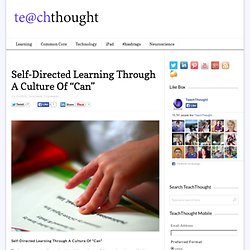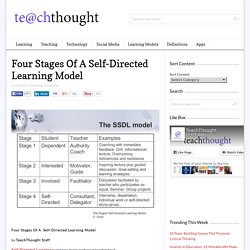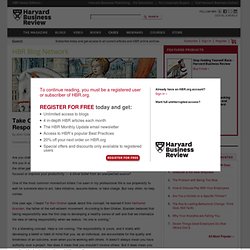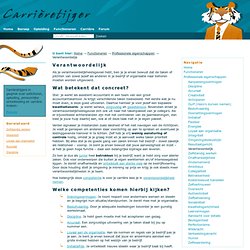

Self-Directed Learning Through A Culture Of "Can" Self-Directed Learning Through A Culture Of “Can” The long-term output of any school should be not just proficient students, but enabled learners.

An “enabled” learner can grasp macro views, uncover micro details, ask questions, plan for new knowledge and transfer thinking across divergent circumstances. This doesn’t happen by content “knowledge holding,” or even by the fire of enthusiasm, but by setting a tone for learning that suggests possibility, and by creating a culture of can. First, it’s important to realize that a “culture” is comprised of tangible factors (students) and intangible factors (curiosity). It is also ever-present — it exists whether or not we as educators acknowledge it. Learning Can If a learner is develop a sense of can, he or she must learn it. While some students have more natural confidence or initiative than others, can is slightly different than confidence. So how does this happen?
Read the rest of the article Terry Heick’s blog at Edutopia. The Four Stages Of The Self-Directed Learning Model. Four Stages Of A Self-Directed Learning Model by TeachThought Staff Self-Directed Learning is not new, but is perhaps misunderstood.

Studied in terms of adult education and vocation for years, self-directed learning is increasing in popularity for a variety of reasons, including growing dissatisfaction with public schooling, and the rich formal and informal learning materials available online. This is the “age of information” after all. Self-directed learning is one response, something slideshare user Barbara Stokes captures in this chart, based on the model by Gerald Grow. The four stages–very similar to the gradual release of responsibility model–appear below. The Four Stages Of The Self-Directed Learning Model Learner Teacher Stage 1 Dependent Authority, Coach Stage 2: Interested Motivator, Guide Stage 3: Involved Facilitator.
Take Ownership of Your Actions by Taking Responsibility - John Coleman. By John Coleman | 7:00 AM August 30, 2012 Are you stalled in a project at work, waiting on someone else to take initiative to get things moving?

Are you in a broken professional relationship — with a manager, coworker, or employee — hoping the other person assumes blame and fixes the issue? Are you looking for an easy way to get focused or improve your productivity — a silver bullet from an unexpected source? One of the most common momentum killers I’ve seen in my professional life is our propensity to wait for someone else to act, take initiative, assume blame, or take charge. But very often, no help comes. One year ago, I heard Tal Ben-Shahar speak about this concept; he learned it from Nathaniel Branden, the father of the self-esteem movement. It’s a liberating concept. This may be particularly important for young leaders, often characterized as a coddled generation.
But leaders of all ages could afford to act as if help is not coming more often. Verantwoordelijk. Als je verantwoordelijkheidsgevoel hebt, ben je je ervan bewust dat de taken of plichten van zowel jezelf als anderen in je bedrijf of organisatie naar behoren moeten worden uitgevoerd.

Wat betekent dat concreet? Stel: je werkt als assistent-accountant in een team van een groot accountantskantoor. Je krijgt verschillende taken toebedeeld. Het eerste wat je nu moet doen, is deze goed uitvoeren. Daartoe hanteer je voor jezelf een bepaalde kwaliteitsnorm: je werkt serieus, zorgvuldig en gewetensvol. Verder signaleer je misstanden zoals laksheid of het niet navolgen van de richtlijnen. Zo ben je dus als junior heel betrokken bij je bedrijf, want je hebt zorg voor allerlei zaken. Hoe belangrijk deze competentie is voor je carrière lees je in verantwoordelijkheid nemen. Welke competenties komen hierbij kijken? Inlevingsvermogen. Bij welke beroepen heb je deze competentie nodig? Wanneer sla je door? Heb je een overmatig verantwoordelijkheidsgevoel, dan kun je heel moeilijk dingen loslaten. Bronnen.